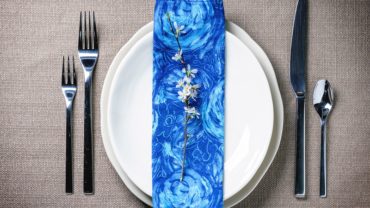Good manners have to do with being considerate and thoughtful about other people.
Portraying good manners shall make one be more likable and be treated with respect by the others.
Good manners for kids does not come in-born. It is of parents’ responsibilities to figure out how to teach kids manners and to get their kids behave appropriately.
If us parents are not teaching our kids the proper manners, they would not realise how inappropriate it is when they pick their nose or interrupt a conversation.
When it comes to teaching good manners for kids, these 6 tips will come in handy for all parents.
Check out this article now and comment below to share with us what do you think about it!
Via Celeb Baby Laundry: 6 Tips for Teaching Your Kids Manners
Having manners can get you a whole lot in this world. If you want to make friends, find a aartner, get the career of your dreams, you will need to know your P’s and Q’s. When it comes to your kids, you need to make sure that you teach them well from an early age.r
Here’s a secret: Kids are not born with good manners. If you don’t show them how to behave, they will go ahead and do whatever they like. I’m not saying that it’s easy to get them to be good, but you need to try. If you’re struggling to teach your little ones to be polite, you’ve come to the right place. Here are a few things that I’ve learned along the way.
Teach Them The Polite Words First
Instead of teaching your kids to say ‘what’ have them say ‘pardon’. It’s the little things like this that make all the difference. As a parent, it’s your job to make sure that your children know what words they should be using. I always teach my little ones the most polite way to say something so that I know that’s what they will go with. Honestly, I think you should do the same.
Show Them How To Share
By their very nature, many kids find it hard to share with one another. Since I’ve got three little bundles of joy in my home, they have no choice but to learn how to share. One of the best things you can do is lead by example. Share things with your children (like snacks and toys) and they will learn to do the same with each other.
Reward Them When They Do Well
You should never, ever underestimate the power of positive reinforcement. When your children do something right, you need to let them know that you’re so very proud of them for that. You should show them that you care about what they’ve done. Let’s say, they remember to say ‘please’ or ‘thank you’. You need to tell them how very good they have been and show that you have noticed their behavior.
Teach Them To Say Sorry
Saying sorry can be hard for us adults, never mind our kids. If you want to teach your kids a really good lesson, show them how to say sorry. Again, you might want to set an example here. When you do something wrong (like dropping something on the floor), simply say ‘Oh, sorry!’ Your kids will see your behavior and begin to copy it in their everyday lives.
Don’t Allow Rudeness
There’s nothing worse than a rude child. If your kid answers you back or is rude to you, you need to nip it in the bud. I’ve found that the ‘naughty step’ technique works very well. The moment they do something wrong, send them to sit on the step for a few minutes. They will learn that bad behavior always gets punished.
Correct Your Kids When They Get It Wrong
Finally, it’s perhaps the most important thing that I’ve learned with my kids. When they get something wrong, you absolutely have to make sure that you correct them right away. You should do this in a calm manner but be sure you don’t forget. For example, if your child forgets to say ‘please’, tell them about it. Don’t be angry; just let them know what you expect. After all, how are they supposed to learn if you don’t correct them?
Share your thoughts in the comments section below!





















